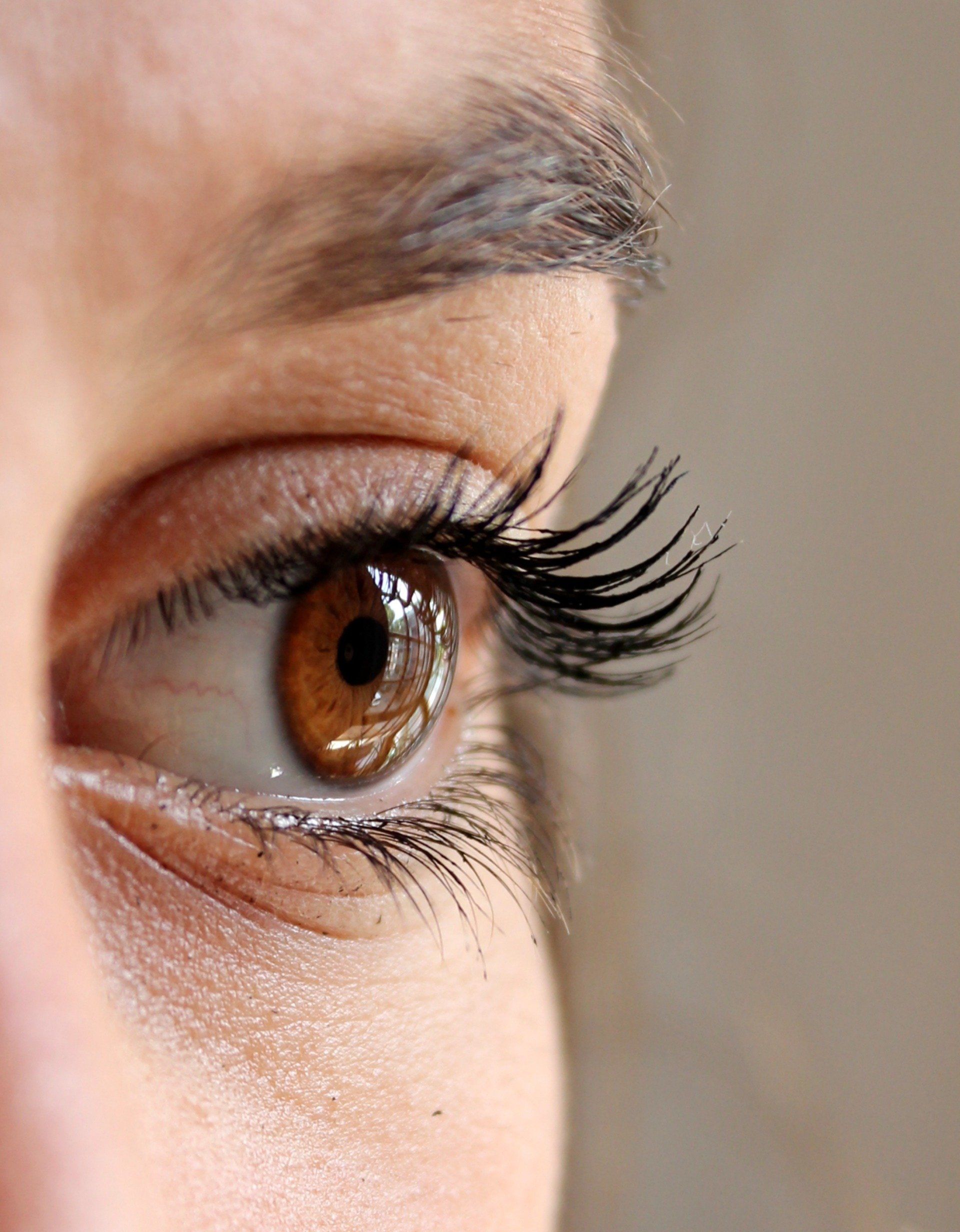Do I have Dry Eye Syndrome?

Do you experience any of the following symptoms in your eyes:
- Itching or redness
- Have a gritty or sandy feeling
- Burning or pain
- Swollen or irritated eyelids
- The sensation that something is in your eye that should not be there
These can all be signs that you might have dry eye syndrome.
Dry Eye Syndrome is one of the most common reasons people visit the eye doctor. The severity can vary from being a mild annoyance to being quite uncomfortable and affecting your daily activities.
Over 58% of the general population have symptoms of dry eye syndrome. Most people have mild symptoms, but 30% of those affected will have moderate issues, and 12% will suffer from severe symptoms that can affect their quality of life (5).
How Tears Work
Tears are made in glands above your eyes, and blinking washes these tears over your eyes. The tears help clean any bacteria or foreign material and drain out of the tear ducts found in the inner corner of the eyes.
Tears generally keep your eyes moist and healthy; they create a tear film over your eye composed of three different layers (oil, water, and mucous), which all work together to maintain moisture and help you have good vision.
Dry eye can occur if you have any issues with the production of tears or poor quality of the tears; this imbalance can then lead to inflammation and damage to the eye surface. (2,4)
Are you at higher risk for Dry eye?
Dry Eye Syndrome can occur in anyone, but you may be at higher risk if you have any of the following:
- Age 50 or more
- Female
- A diet low in Omega 3 Fatty Acids (found in salmon, walnuts, and chia seeds) or Vitamin A (found in leafy green vegetables, carrots, cantaloupe, and eggs)
- Wear contacts
- Look at a computer screen for extended periods
- Take certain medications like diuretics (“water pills,” usually prescribed for blood pressure), beta-blockers (usually for heart problems or blood pressure), anti-histamines (usually for allergy or cold symptoms), sleeping pills, or anxiety and antidepressant medicine
- Have certain diseases like thyroid disease, rheumatoid arthritis, lupus, or Sjogren’s Syndrome
- History of refractory surgery (like LASIK) (1,2)
Diagnosing Dry Eye Syndrome
Your eye doctor can diagnose dry eye syndrome with a complete eye exam.
They will assess your eyelids, cornea, and your blinking under a bright light. They may also put in eyedrops which will dye your tears and then assess your eyes under a blue light which checks the tear film. If the tears break apart quickly, they are unstable, indicating dry eye. This dye can also identify problems on the surface of the eye. (5)
Treatments
The recommended treatment for dry eye syndrome will depend on how severe it is found to be.
Initially, a person may be advised to use over-the-counter artificial tears or rewetting drops; these can be used as often as needed. Other suggestions would be lifestyle changes
- avoiding airflow to the face/eyes (fans used at night, heaters blowing in the car, hairdryers)
- reducing screen time
- using a humidifier when the weather is colder to provide more moisture in the air
Lid hygiene (warm compresses to the eyes and lid scrubs) and getting Omega 3 fatty acids in your diet can also be recommended.
Other treatments that may be recommended for more moderate and severe symptoms are
- eye ointments and gels
- punctal plugs (temporary or permanent plugs put into the tear ducts to help keep the moisture on the eye)
- moisture goggles, pulsed light therapy
- prescription eye drops or steroid medications
- surgical procedures in some situations (3)
Other Preventative Strategies
- Drink plenty of water.
- Wear protective / wraparound glasses when out in the sun and wind.
- Avoid alcohol and smoking.
- Take frequent breaks from screen time – use the 20-20-20 rule (every 20min of screen time, look at an object 20 feet away for 20 seconds). (5)
- Keep the computer screen at or below eye level, so you do not need to open your eyes as wide – this may help the tears remain longer in your eyes. (4)
- Eat a healthy diet that includes omega-3 fatty acids.
References
- https://www.nei.nih.gov/learn-about-eye-health/eye-conditions-and-diseases/dry-eyehttps://www.aoa.org/healthy-eyes/eye-and-vision-conditions/dry-eye?sso=y
- https://www.ncbi.nlm.nih.gov/books/NBK470411/
- https://www.mayoclinic.org/diseases-conditions/dry-eyes/symptoms-causes/syc-20371863
- https://www.optometrists.org/general-practice-optometry/guide-to-eye-conditions/dry-eye/what-is-dry-eye-syndrome/
Bio:
Kristin Wheeler, RN has been a nurse for 28 years, most recently working in a Weight and Wellness Center which specializes in bariatrics and obesity treatment. She has over 10 years of experience working in family practice and worked as a care coordinator for patients with chronic and complex health needs. Kristin has worked in acute care settings, homecare, ambulatory care, and specialty areas.
Thank you for reading Patient Education Essentials, the Write Shift RN blog.
Disclaimer: This article was written as a guest post for Write Shift RN LLC's blog. The information in it may not be wholly fact-checked or edited, allowing the reader to see the writer's work and skills firsthand. This information is not intended as medical advice. It is for informational and educational purposes only. Always talk to your doctor or other qualified healthcare providers about any questions or concerns you may have regarding medical conditions.











